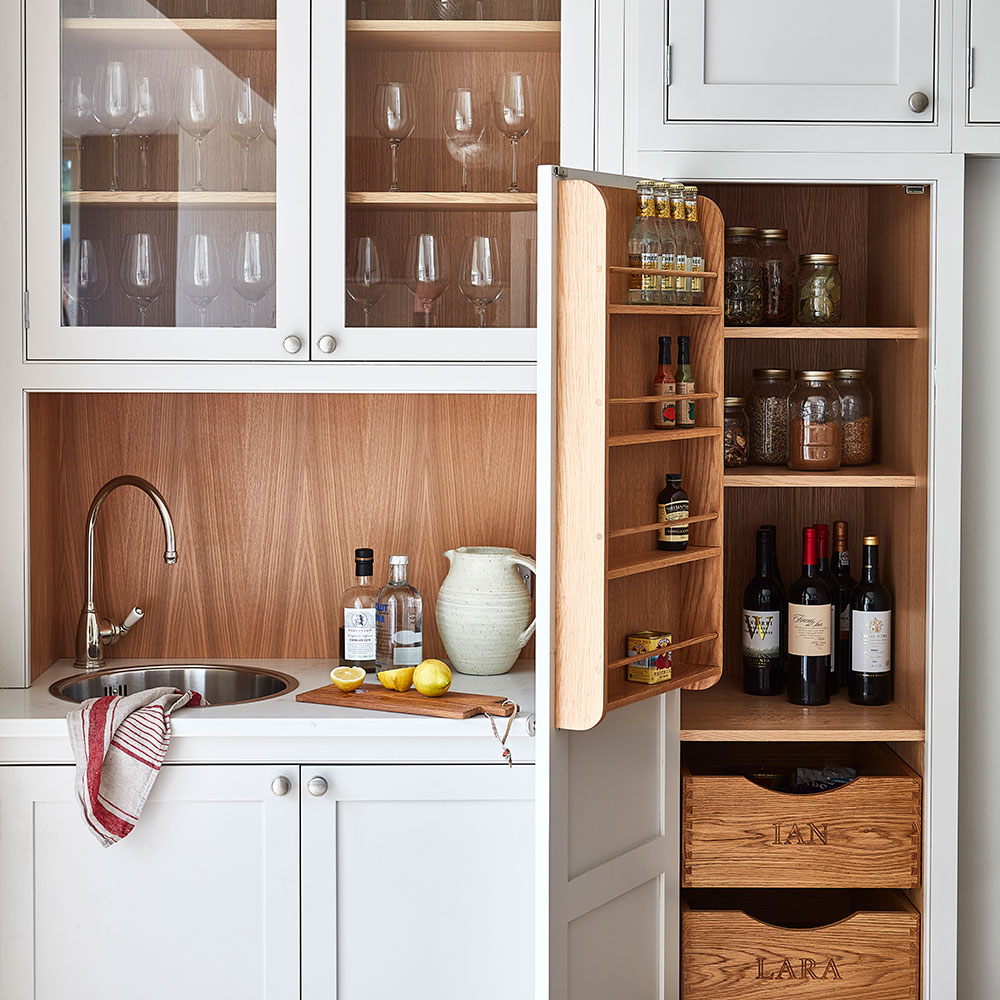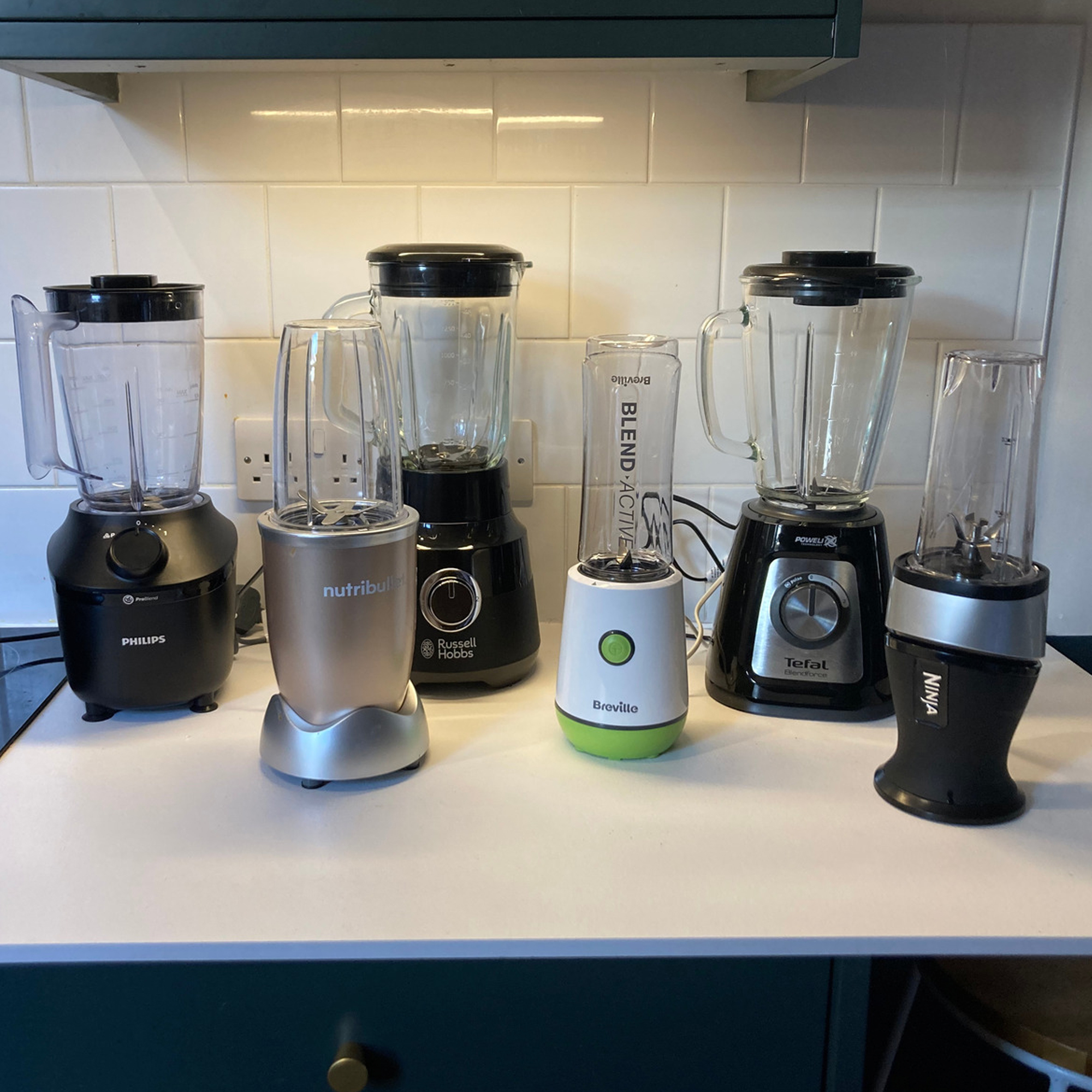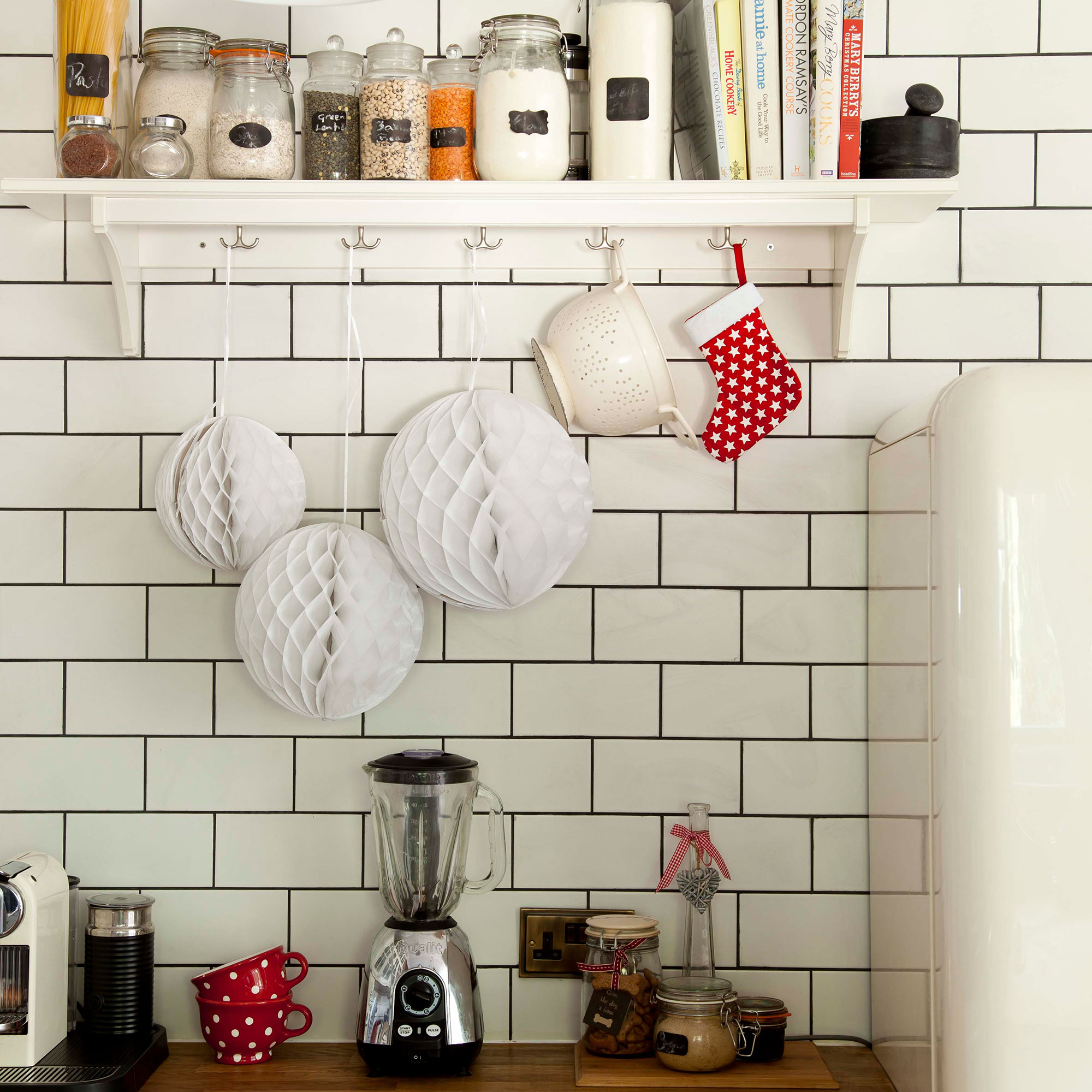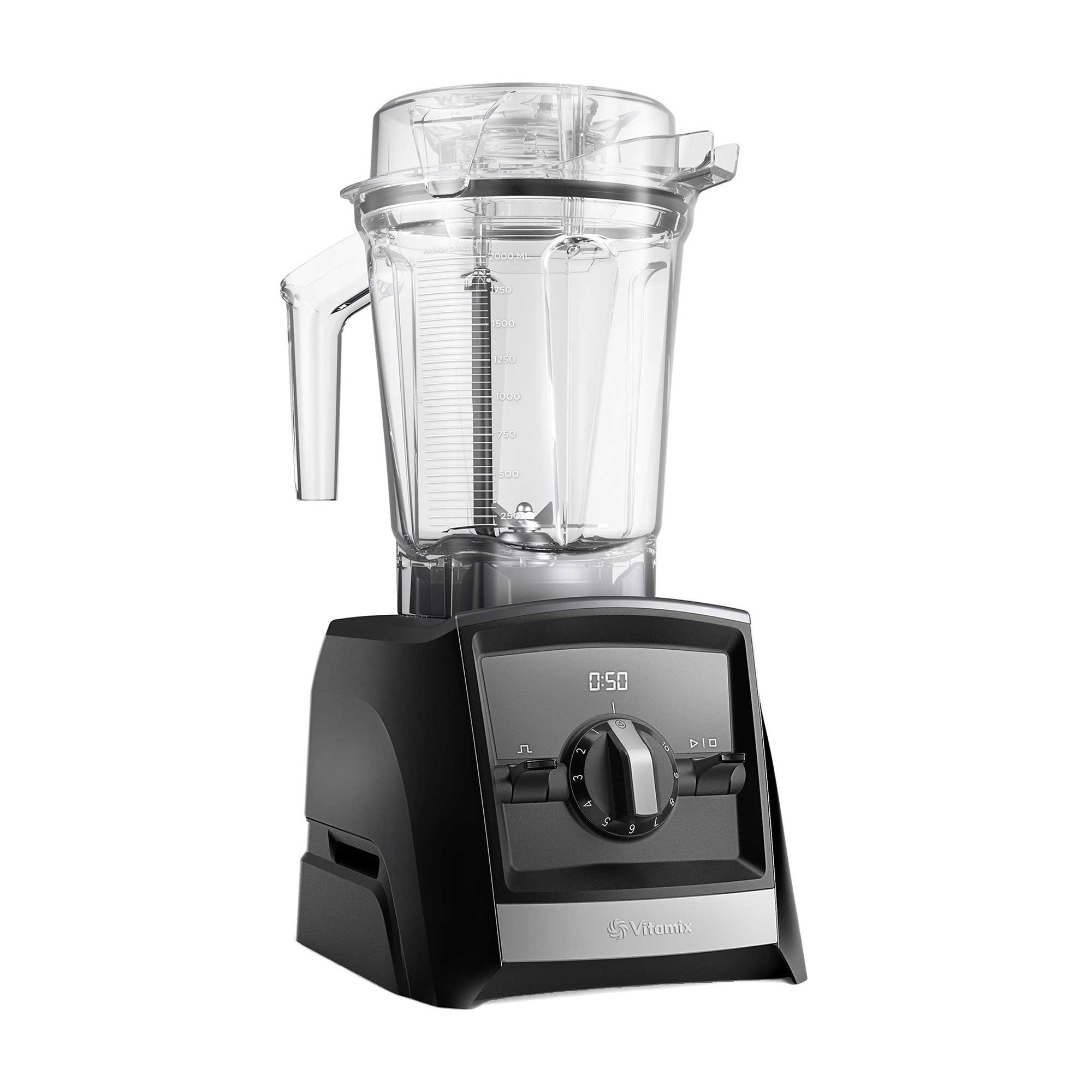Do you need an expensive blender? Top chefs weigh in on the products they use in professional kitchens
A top-of-the-range Vitamix costs £750. Is it worth it?


Sign up to our newsletter for style inspiration, real homes, project and garden advice and shopping know-how
You are now subscribed
Your newsletter sign-up was successful
If your kitchen is a case of 'too many appliances, too little time', then you're not alone. In a world where every kitchen gadget is marketed as a must-have, there's only a finite amount of worktop space. So do you need an expensive blender? Or is it a splurge you can skip?
As Ideal Home's Kitchen Appliances Editor, I know my Vitamixes from my Nutribullets, and I've even seen blenders in action that cost over £1000. Our guide to the best blenders combines affordability with functionality, but it's the expensive blenders that professional chefs and even celebrity names (I'm looking at you, Gordon Ramsay) seem to turn to again and again.
Consider this an investigation into whether you really do need the exact blender they use at Starbucks or on Masterchef, or whether a less affordable alternative will do the same job, bolstered by the first-hand experience of a bunch of professional chefs.
Is an expensive blender worth it?
It feels like there are a billion different blenders on the market. While there's not quite that many, it is true this appliance is part of a billion-pound market, which makes it tricky to know whether big-ticket items, like a Blentec or a Vitamix are actually worth the big bucks, or whether brands are just hoping you'll cash out all the same.
We've tried the big boys in the blender game, including in our Vitamix Ascent Series A3500i Blender review, and in our Sage Super Q review, with the latter being described as 'commercial-grade' by the brand.
Rumour has it that Vitamix blenders are the appliance of choice in Starbucks, which means that you might have enjoyed the fruits of one of these products without even knowing it. Similarly, Blendtec is a luxury brand that garners a lot of attention, notably for its 'Will it Blend' series on YouTube.

So what do you get from expensive blenders that you don't get from cheap ones?
Sign up to our newsletter for style inspiration, real homes, project and garden advice and shopping know-how
After testing swathes of blenders, the main differences that we've found fall into two categories: quality of blending and quality of use.
The first category is all the things you'd expect: the quality of blending you get is noticeably higher, with finer textures, whether you're blitzing up a nut butter or just putting together a smoothie. When we tried a Vitamix, we found it took next to no power to pulverise ingredients into a smoothie mix.
The soup setting on the Vitamix A3500i also left our tester with a consistency that she's never beaten since. It slowly works through the increasing blending speeds, leaving you with a perfectly formulated liquid.

We love a bargain blender at Ideal Home, as our guide to the best cheap blenders shows, but there are also user experience drawbacks that you can skip if you splash out on a pricier blender. In short, you won't have to reckon with a super loud, hard to clean appliance that doesn't last.
It's not just our testing experience that we're drawing on here. After quizzing top chefs on their appliances of choice, Dylan James, Head Chef at Cambium Restaurant at Careys Manor Hotel & SenSpa, voiced his preference for a higher quality blender.
Dylan says 'I have worked with Thermomix a lot in my career. It can blend, it can be a mixer for baking, you can cook in a Thermomix such as making a risotto, you can even weigh ingredients straight into it, so it is a very useful appliance.'
He goes on to note the exact blenders he uses in professional settings, saying 'At work we have a blender called a Vitamix which is very powerful perfect for sauces, soups, and purees. We also have a Robot Coupe which is perfect for pasta dough making, pastry making and comes with grating and slicing attachments.'
Dylan isn't the only chef to name check Vitamix in particular. Simon Hulstone, a Michelin starred chef and regular guest chef on James Martin’s Saturday Kitchen also uses the brand's blenders in his restaurant The Elephant.
'I've had the Vitamix for four years without any issues. Its main advantage is its durability. When we were using cheaper options their engines would burn out regularly and we were having to replace far too frequently.'
He goes onto say that 'the Vitamix is capable of doing a lot more. We use it back of house for purées, soups, emulsions, powders and front of house for cocktails and ice crushing. It was well worth the investment.'

And while an expensive blender might be commonplace in a professional kitchen that has everything to hand, I was keen to find out if it would make it onto a desert island list of appliances for a chef. Upon asking for his top three appliances, Dylan James (of Cambium Restaurant) said 'the Vitamix and Robot Coupe for sure' would be his picks, 'as they are well used in the day-to-day running of the kitchen.'
He went on to say that 'Both are very versatile, especially the robot with all its attachments. It’s almost like having an extra chef! Also, a Vac pack machine. They are seriously useful for preserving, marinading, and retaining the flavours and textures of ingredients, which also allows us to get the most out of seasonal ingredients for example by pickling/curing, so that we can use the ingredient even if it is out of season.'
Our verdict on whether you need an expensive blender
If you find yourself reaching for your blender several times a day, then upgrading to an expensive model will prove a return on investment for your kitchen. You'll appreciate the increase in quality, and the smoother user experience.
Dylan James, Head Chef at Cambium Restaurant at Careys Manor Hotel & SenSpa agrees, saying 'If you want a blender that can produce quality soups, sauces, or purees for a dinner party or because you are a keen foodie then definitely go for a more upmarket blender. If you just want to use for smoothie for example, then an average one will be fine.'
We couldn't agree more.

Molly is Ideal Home’s Kitchen Appliances Editor, the Ideal Home Certified Expert on Appliances. An all-around cooking and baking enthusiast, she loves finding the next must-have product for readers that will their kitchen a better place. She joined the team in September 2022 after working on the editorial teams of Real Homes, Homes & Gardens and Livingetc.
For the last 4 years, she's been reviewing hundreds of small appliances; conducting tests at home or in the Ideal Home test kitchen. She would be hard-pressed to pick a Mastermind specialist subject but air fryers are her ultimate area of expertise, after testing just about every single one released since 2022.
To keep ahead of trends and new releases, Molly has visited the testing and development spaces of multiple kitchen brands including Ninja Kitchen and Le Creuset as well as attended consumer shows such as IFA, hosted in Berlin to see the cooking innovations of the future.
